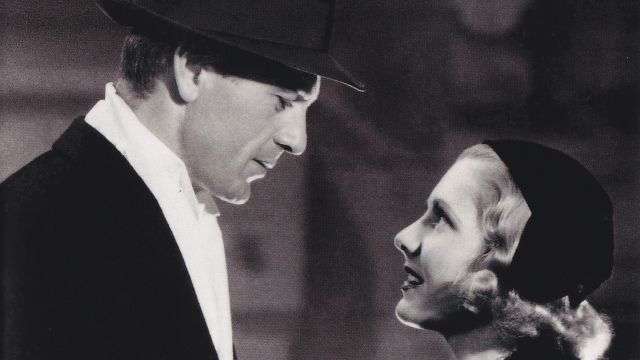Mr. Deeds Goes to Town (1936) 
“Rocking America with laughter!”

Director: Frank Capra
Cast: Gary Cooper, Jean Arthur, George Bancroft
Synopsis: Longfellow Deeds, a simple-hearted Vermont tuba player, inherits a fortune and has to contend with opportunist city slickers.
When a wealthy uncle whom he didn’t know dies in a car accident, Longfellow Deeds (Gary Cooper), a naive but deceptively wise young man, inherits his $20 million fortune. The money doesn’t seem to mean a lot to Longfellow, who lives in the idyllic, Capra-esque village of Mandrake Falls and earns a modest living from writing sentimental verses for greeting cards, a fact which both bemuses and delights John Cedar (Douglas Dumbrille) a lawyer for Cedar, Cedar, Cedar and Budington, who needs to obtain power of attorney from Longfellow in order to continue concealing financial irregularities in his handling of the Deeds’ family affairs.
Longfellow’s inheritance sparks a huge amount of media interest, but Cedar is careful to keep him out of the public eye, a fact which frustrates newspaper editor MacWade (George Bancroft), who gives his top reporter Babe Bennett (Jean Arthur) the job of getting to know Deeds in order to scoop the inside story on him. Babe does this by engineering a meeting outside the mansion Longfellow has inherited, in which she pretends to faint in the rain. The gullible Longfellow falls for her ruse, and takes her for dinner. It’s not long before Babe’s natural charm wins him over, but to her consternation, Babe finds that she is beginning to fall for him. Her guilt at writing the exclusive newspaper reports about Longfellow’s antics that rile him so eventually lead her to decide to confess everything to him, but before she can Longfellow’s friend Cornelius Cobb (Lionel Stander) uncovers her true identity.
Gary Cooper gives one of his best and most endearing performances as Longfellow Deeds, a character whose apparent simplicity disguises a surprising amount of depth and emotion. Longfellow possesses that homespun wisdom peculiar to American movies of the time; a slow, thoughtful consideration of, and for, those around him. But this thoughtfulness can as often lead to violence as kindness, simply because his deliberations lead to absolute certainty. His naivety doesn’t prevent Longfellow from cutting through the flannel others, such as the opera committee, try to feed him. He’s a simple man, but he’s no fool.
A measure of the quality of Cooper’s performance can be found in the scene in which Babe confesses during a phone conversation with Longfellow that she is the one who has been writing the sensationalised newspaper articles about him. Once he puts down the phone, all the emotions coursing within him bubble briefly to the surface, but with a subtlety and understatement that demonstrates Cooper’s versatility. It’s one of those scenes that’s easy to miss if you’re not paying close enough attention. In one fleeting moment he gives Cobb a sad, regretful smile that encapsulates not only everything that Longfellow is feeling at that moment, but his entire essence. Cooper delivers the gesture with such unaffected genuineness that it transforms that one simple gesture into the heart-breaking core of the movie.
Longfellow’s discovery of Babe’s deception marks the turning point of the film from gentle comedy to social commentary as he decides to give all of his money to penniless farmers whose livelihood has been ruined by the depression. Sadly, it’s also the point at which the film loses much of its charm as the lawyers for Longfellow’s uncle’s estate launch a legal action to have him judged insane. It’s a move which results in one of those court cases in which the partisan onlookers roar with forced laughter each time the litigants fall flat on their face, and in which the decision is never in doubt. It seems as if there’s a half-baked Jesus allegory behind Robert Riskin’s screenplay (‘I’m crucifying him’ Babe confides to her room-mate at one point), mixed in with the philosophy that the country’s economic difficulties at the time was a problem not only for the poor, but for the wealthy, who should be more aware of the hardships suffered by the honest working man and willing to contribute to their aid. This meshing of quasi-religious allegory and social commentary is ultimately an uneasy one that is only partially overcome by the quality of Riskin’s writing and the polished performances of a typically first-class cast.
(Reviewed 27th December 2011)
httpv://www.youtube.com/watch?v=GLzWGnBqumk
